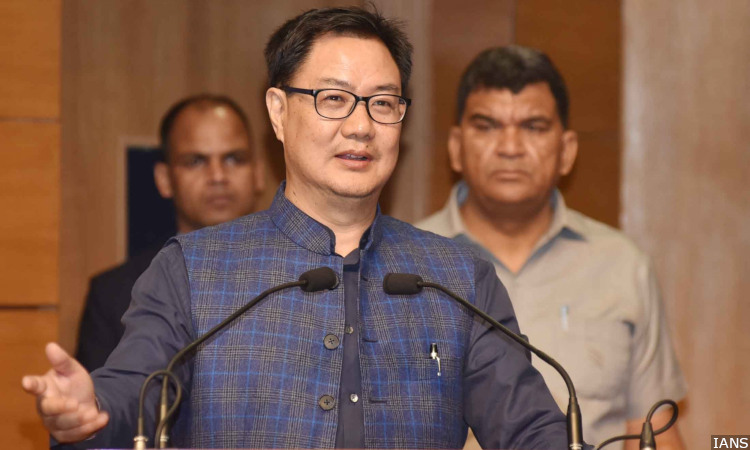Fewer Riots, Minorities Safer Under Modi Regime: Kiren Rijiju. Data Right On Riots, But Claim On Safer Minorities Without Foundation

Mumbai: “Less riots and minorities safer under Modi regime than 10 years of UPA rule, proves RTI.”
Kiren Rijiju, minister of state for home affairs, claimed in a tweet, citing a report based on right to information (RTI) data, on January 6, 2019.
Rijiju’s claim on fewer riots during the Narendra Modi-led National Democratic Alliance (NDA) rule in terms of numbers is true.
However, the data on communal incidents do not identify victims killed or injured on the basis of their religion or caste, and therefore making the claim that minorities are now safer is without foundation.
As many as 10,362 communal incidents were reported between 2004 and 2017, according to official data. Of these incidents, the most--37% or 3,821--incidents were recorded during the United Progressive Alliance UPA-I (2004-08), followed by UPA-II (2009-13)--35% or 3,621 incidents and NDA--28% or 2,920 between 2014 and 2017, data compiled by FactChecker.in from the Lok Sabha (lower house of Parliament) and the ministry of home affairs annual reports show.
The National Crime Records Bureau (NCRB) records “rioting” under Sections 147-151 and 153A of the Indian Penal Code (IPC). These are further classified into “agrarian, caste conflict, political, communal, students, sectarian, industrial and other rioting”. Section 153A of the IPC relates to promoting enmity on the ground of religion, race, and place of birth.
However, stray incidents of violence, which prima facie appear to be motivated by religious identity of the victim, are not recorded by the government, FactChecker.in reported on October 30, 2018.
These crimes do not find place in the records on communal riots as they are broadly classified under IPC sections such as those relating to murder (section 302), grievous hurt (Section 325, 326) or vandalism (Section 425).
Between 2009 and 2018, minorities formed roughly 74% of the victims attacked in 279 religious-identity motivated hate crimes recorded in Hate Crime Watch, according to Hate Crime Watch, a FactChecker.in database that tracks such violence. Over 90% of these attacks took place after 2014, when the Bharatiya Janata Party came to power at the Centre, reaching a decadal high in 2018, we reported on December 27, 2018.
Specifically, between 2010 to-date, India recorded 123 cases of cow-related violence wherein Muslims formed over 50% of the victims attacked and 78% of those killed indicating a trend of bias, according to a FactChecker.in database that tracks this particular violence. About 98% of these crimes took place after 2014, the database further showed.
Most deaths (652) in communal incidents were recorded during UPA-I, while the most injuries (10,884) were recorded in UPA-II regime, government data show.
Source: Lok Sabha - December 11, 2018; February 6, 2018; August 8, 2017; December 2, 2014; November 27, 2012; August 10, 2010; Ministry of Home Affairs Annual Report: 2006-07; 2005-06; 2004-05. Note: The data for 2004 in the RTI reply does not match with data found in the ministry of home affairs annual report 2004-05 noted in the table above.
The most incidents (943) were reported in 2008, an increase of 24% over the previous year, followed by 2009 (849) and 2013 (823). Most deaths were also recorded in 2008 (167) while most injuries were reported in 2009 (2,461).
The data for 2004 in the RTI reply tweeted by Rijiju do not match with the data in the ministry of home affairs’ annual report 2004-05.
The RTI data were provided to Amit Gupta, a Noida-based information technology professional and RTI activist, according to the report by My Nation, a web portal, cited by Rijiju in his tweet.
In 2014, the NCRB reported almost twice the number of communal riots compared to the home ministry, after which the gap closed in 2015 and widened again in 2016, according to this Factly.in report published in IndiaSpend on December 7, 2017, pointing to discrepancy in data collection between the two offices.
In 2016, 869 cases relating to communal riots were recorded by the NCRB (the latest available) compared to 703 communal incidents by the home ministry, the report found.
We welcome feedback. Please write to respond@indiaspend.org. We reserve the right to edit responses for language and grammar.



